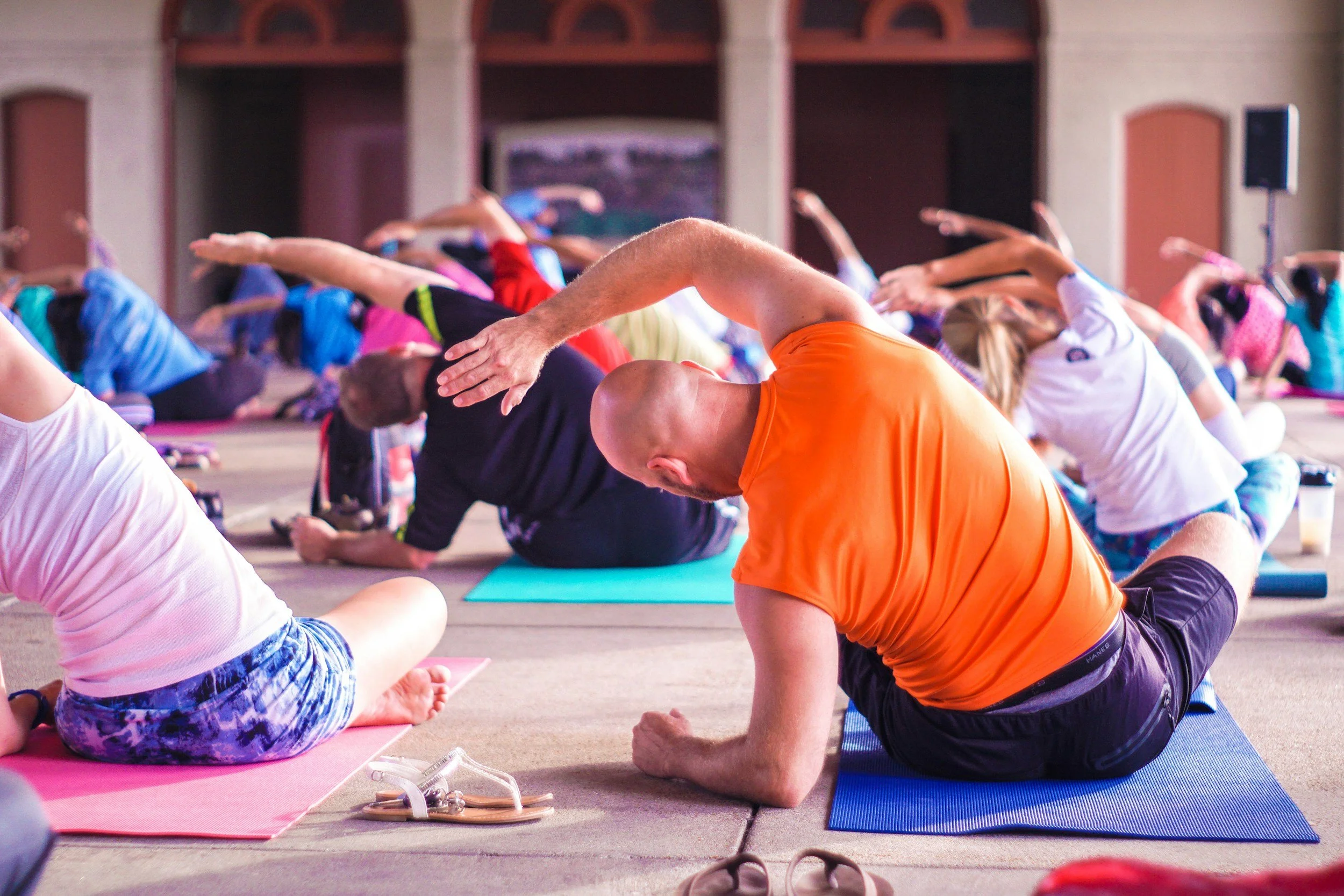Science-backed and data-driven.
Every aspect of our program is grounded in research so you can feel confident in the program approach.
The data on human behavior isn’t always easy to capture. We measure participant stress levels before and after so you can see the data for yourself.

The magic is in the method.
YMI combines three proven modalities of stress prevention. Our unique approach is accessible for all and yields rapid and enduring results.
“The integration of focused attention, movement, and cognitive restructuring forms a resilient framework for enhancing whole-person performance. Each practice targets a different domain—mental clarity, physiological regulation, and emotional adaptability—while collectively reinforcing organizational wellbeing.”
Individual Modality Studies
Meditation & Stress
Focused Attention (FA) meditation is a well-supported and effective method for enhancing mental health. It consistently shows benefits for anxiety, depression, PTSD, stress reduction, emotional regulation, and cognitive control.
The YMI program incorporates FA meditation to help participants train their attention.
The following research studies provide evidence of the benefits of FA meditation.
Movement & Stress
Physical activity is now widely recognized as essential for mental health. Even very modest amounts of movement can have a signifcant impact.
YMI incorporates movement that is known to improve heart rate variability (HRV). This type of movement (often found in yoga), is effective for increasing parasympathetic activity and reducing stress-related sympathetic drive.
Cognitive Restructuring & Stress
Cognitive Behavioral Therapy and it’s related approach, Cognitive Restructuring, are the most commonly-used and most effective therapy methods for addressing stress.
The fact that changing one’s own thoughts is the key to addressing suffering demonstrates the importance of addressing change within.
Combined Modality Studies
Meditation + Movement
Integrating meditation with physical movement creates synergistic benefits for stress reduction and mental well-being.
The YMI program intentionally combines these modalities to maximize and accelerate their impact.
Cognitive Restructuring + Movement
Integrating physical movement with CBT or CR has been shown to enhance treatment outcomes for stress, anxiety, and depression. The combination offers a more holistic approach to mental health treatment.
The YMI program intentionally combines these modalities to maximize and accelerate their impact.
Meditation + Movement + CR
The combination of all three modalities is where the YMI program exceeds all others in terms of speed, efficacy, and durability. No other programs like this exist that we know of. The results of our own participant measurement demonstrate the potential of this program across all employee, company, and industry types.






